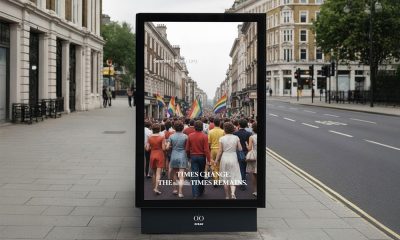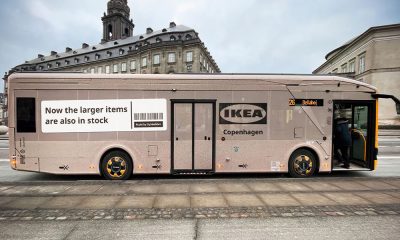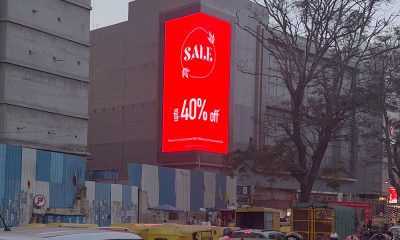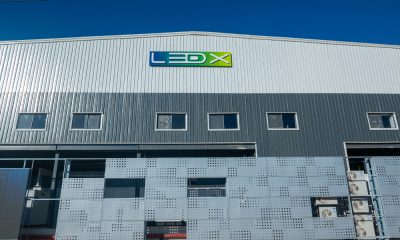Audience Data & Measurement
‘AI set to accelerate DOOH growth’
Ocean Group CEO Stephen Joseph says that if used properly, AI should be a positive driver for the growth of better DOOH, democratising the channel and clearing hurdles that slow down the transactional, creative and strategic process.
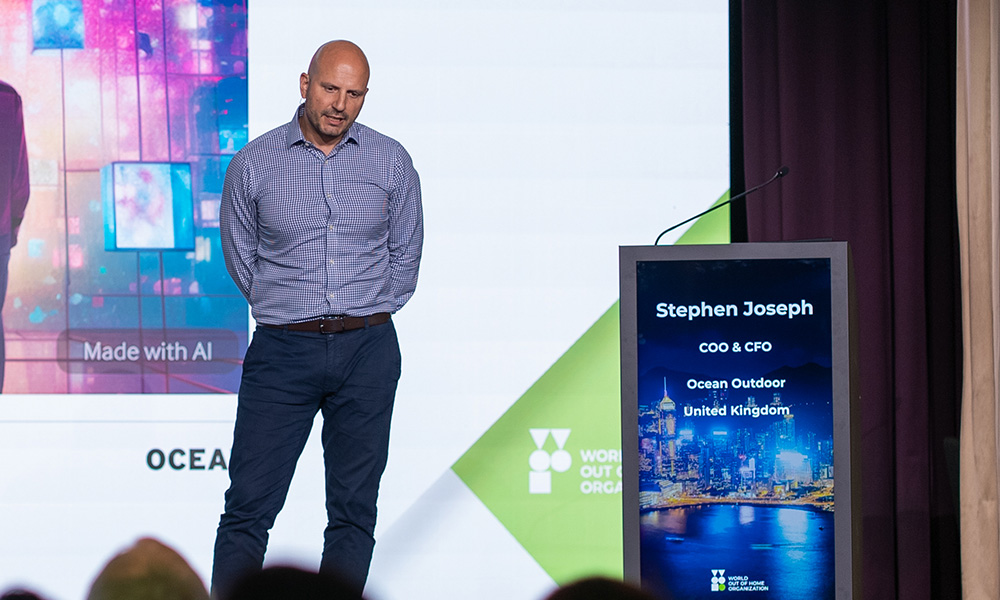
AI is set to accelerate digital out of home’s growth by bridging the current attribution gap, says Ocean Outdoor’s incoming Group CEO Stephen Joseph.
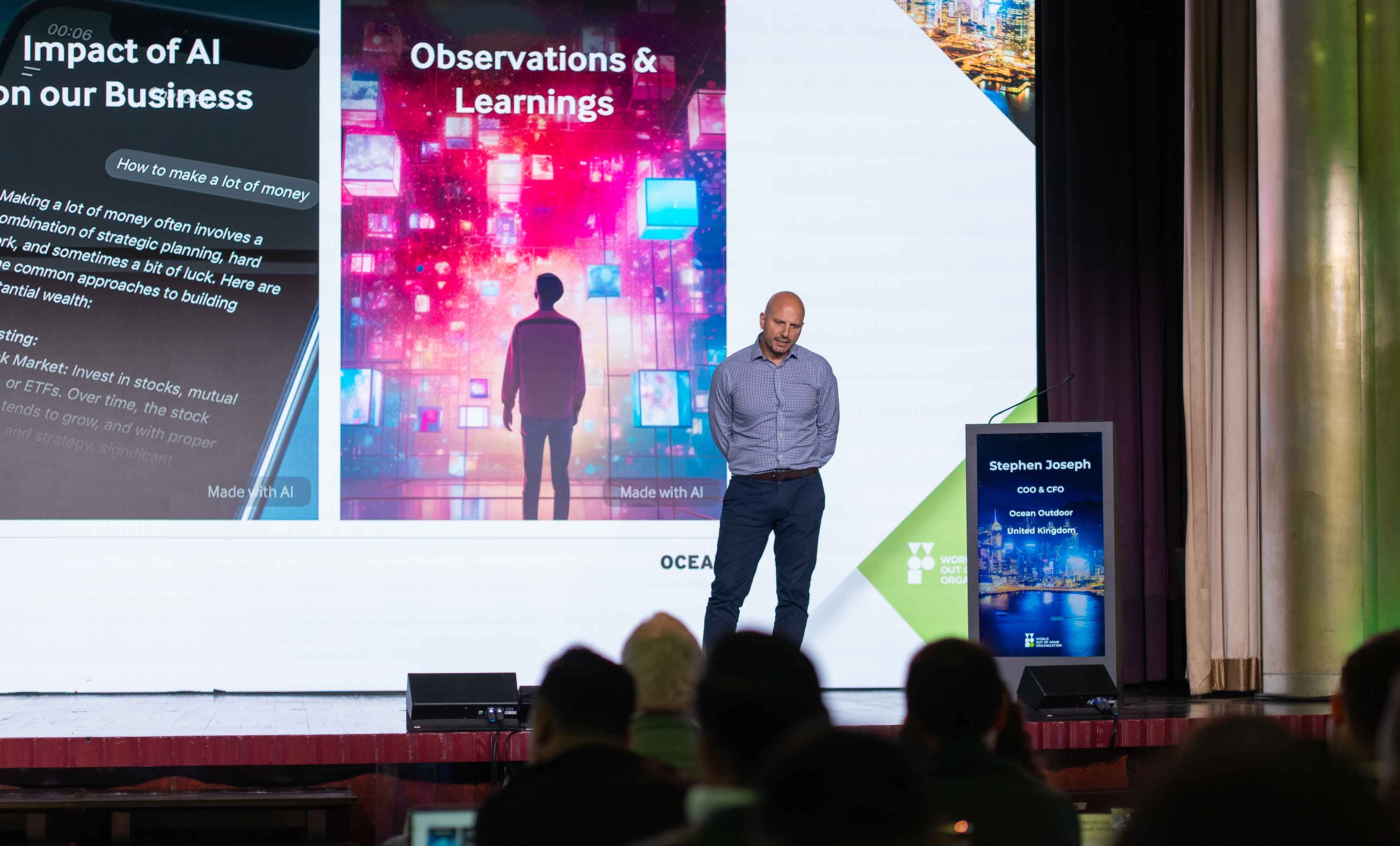
In a presentation to the World Out of Home Organization’s World Congress in Hong Kong, Stephen outlined the use of AI in the race to develop new technologies to streamline the DOOH value chain, using machine learning to transform the sales, media planning and creative processes.
Stephen said if used properly, AI should be a positive driver for the growth of better DOOH, democratising the channel and clearing hurdles that slow down the transactional, creative and strategic process.
He warned however that company data should remain ringfenced and not be allowed to power an AI tool that eliminates any USPs. He called on the industry to explore and use AI, “without being open to being used by AI”.
“AI breaks the paradigm, but our advice is to approach the opportunity with an open mind. Do your due diligence. Robust data is key but remember to apply a data moat and only share what you really need to,” he said.
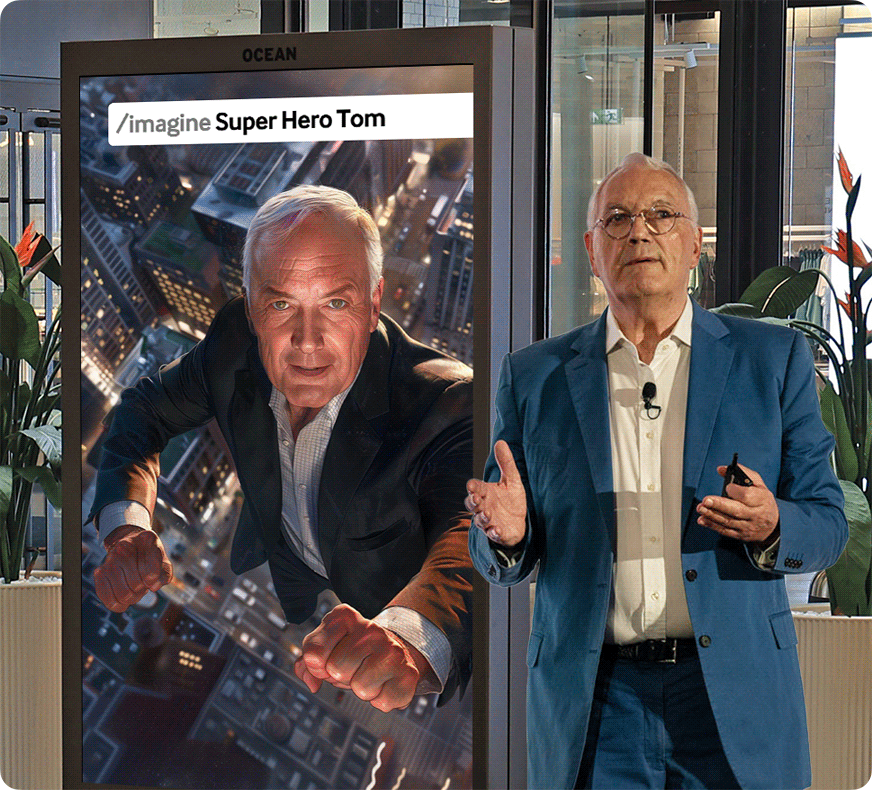
Joseph said early stage AI was already being used to supercharge efficiencies, scaling time consuming creative design processes such as generatively filling screens across all formats. Brands now delivering AI generated adverts and personalised content include Coca-Cola and Pampers using tools such as ChatGPT and Dall-E.
He said that the application of AI to media planning and buying processes will liberate the sales and trading functions by bridging the gap between automated, demand side and supply side programmatic trading systems, using deep learning to streamline planning processes, freeing up critical team time to be spent on advertising strategy and big, creative thinking instead.
Stephen said: “For agencies and trading desks, AI will optimise the entire planning process. A combination of data, market predictions and accurate measurability will fundamentally transform repetitive or automated tasks and programmatic capabilities, optimising real time DOOH delivery. Mapping the user journey more accurately using live data and sentiment – making predictions about how audiences move and feel – will bridge the attribution gap, enhancing ROI.
“The second major impact will be on accountability and authenticity. Algorithms will transform play out verification and campaign outcomes, manage over and under supply in real time and detect and crack down on ad fraud and poorly executed OOH imitations, or fake DOOH, which only serve to erode brand trust.”
Crafting authentic DOOH which is trusted and resonates with online audiences are brands like Unilever’s Magnum which used genuine 3D DeepScreen® content augmented with a clever edit to create a real tension between real OOH and surrealism, “amplifying the impossible which is where the magic happens”, he said.
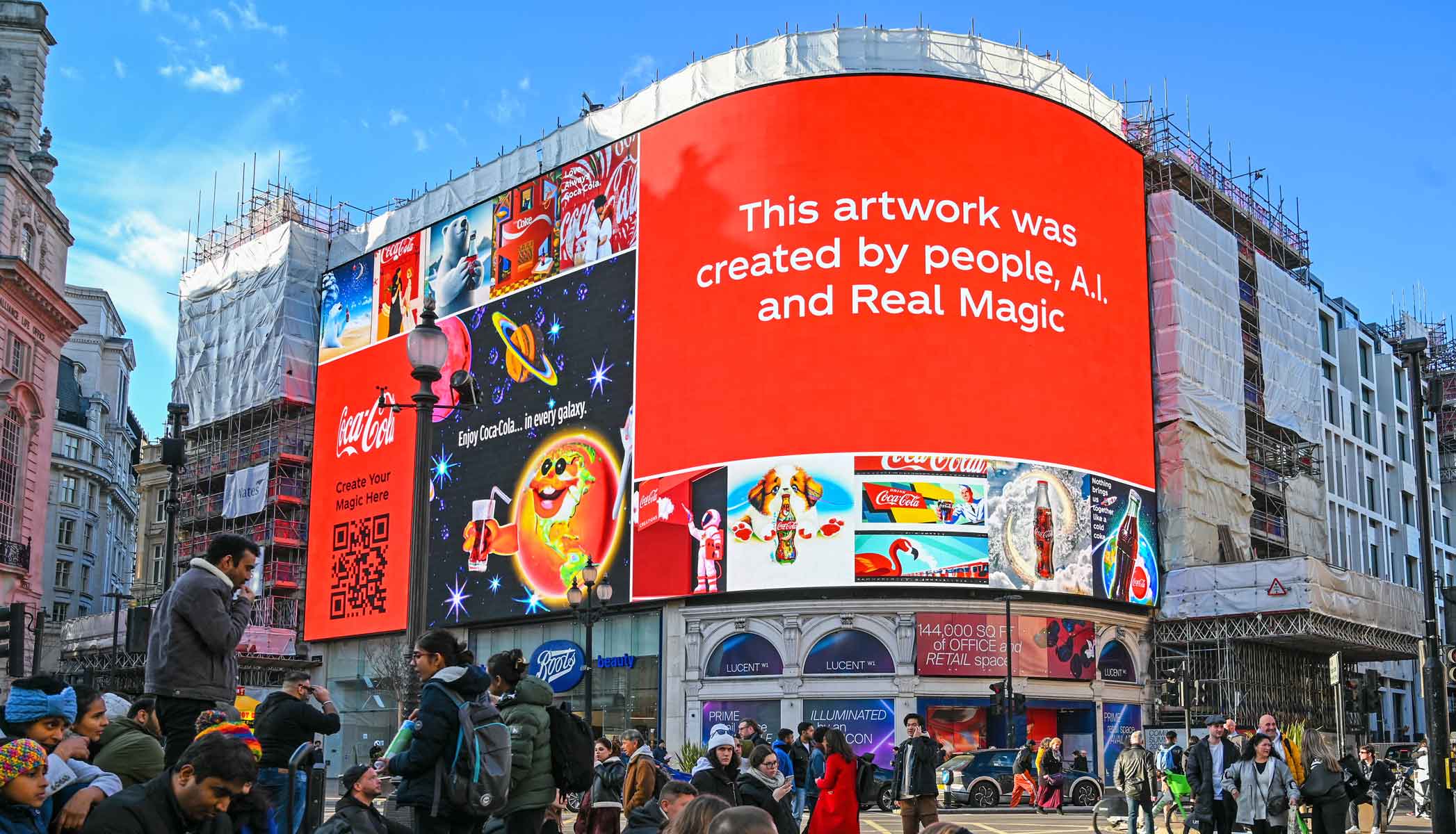
In terms of OOH real estate, Stephen said that using inventory and development data to help with the development of integrated “smart city” locations would more easily identify gaps in the market, improve the digital signage supply chain and help meet the industry’s sustainability goals.
He concluded: “To stay ahead of the curve, DOOH must have a say in the development of AI planning tools which will optimise our effectiveness, attract and retain the right talent, enhance our market valuation and improve our growth trajectory.”


